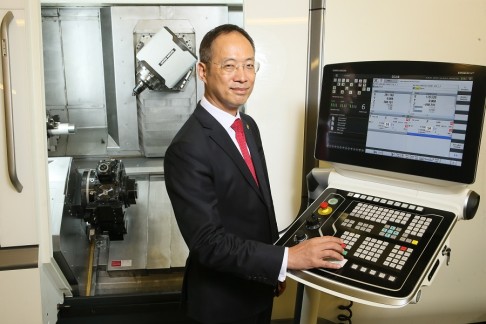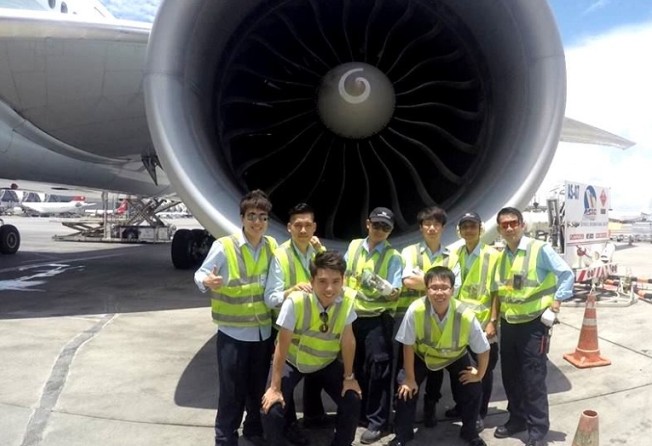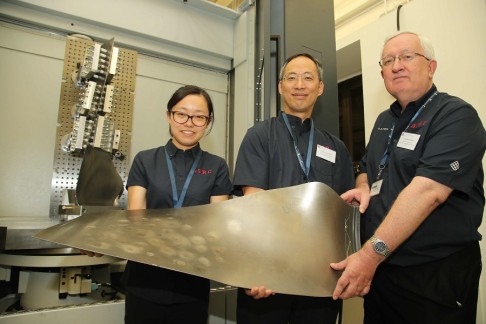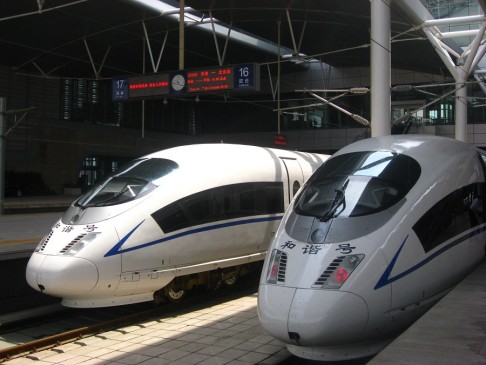
PolyU pioneers change our world

[Sponsored Article] Ground-breaking research with practical applications is a key function for leading academic institutions and, in that respect, the Hong Kong Polytechnic University (PolyU) more than plays its part.
“We are continuously pushing the frontiers of knowledge by conducting projects which have a direct impact, and by making breakthroughs which solve problems, create hope and benefit mankind,” says professor Alex Wai, PolyU’s vice-president of research development.
“Overall, the aim is to change the world for the better. That can be done by helping to save lives, boost economic efficiency, foster sustainability, or even open up new horizons in space.”
Over the years, there have been many notable successes in areas ranging from railway monitoring technology and aviation services, to lunar exploration projects and food safety.
For example, as a pioneer in the field of applied photonics, a PolyU team developed proprietary optical fibre sensing technology for rail services to use in the continuous monitoring of tracks. This was a first of its kind initiative, which has since been adopted in the mainland and elsewhere overseas.
In addition, the Aviation Services Research Centre (ASRC) jointly established by PolyU and Boeing in 2013, has successfully developed new automation technologies. These have led to a better quality of repair services, a more streamlined workflow when replacing aircraft parts, and a reduction in maintenance and refurbishment costs. The outcomes also include enhanced efficiency and improved safety standards for the aviation industry.
Another proud achievement is the Camera Pointing System, developed in collaboration with the China Academy of Space. It was deployed aboard the Chang’e 3 lander, which touched down on the moon in December 2013.
“The system is a highly compact, lightweight marvel that made possible the clear images beamed back to Earth,” Wai says. “Before that, the university had already developed the Soil Preparation System deployed on the Sino-Russian Phobos-Grunt Mission in 2011.”
The system, which weighed a mere 400 grams, was capable of sifting rocks from the Martian moon Phobos, grinding them down to less than one millimetre in diameter for in situ analysis, and transporting them back to Earth to study for signs of life.
Focusing on an increasingly important area, PolyU’s Food Safety and Technology Research Centre, open since 2011, primarily develops fast but lowcost tests to assess food samples. For instance, the centre came up with a new method for rapid authentication of edible oils and the screening of gutter oils. It also developed fluorescent probes for the rapid detection of formaldehyde in food. And, in 2015, PolyU took the next logical step by establishing the Food Safety Consortium, which now provides a platform to pinpoint issues of concern to the industry, government and the public.
We are continuously pushing the frontiers of knowledge
“We aim to do research with impact,” Wai says. “A platform like this helps in exchanging views and translating technologies developed by academia into practical solutions to tackle food safety issues.”
He adds that having dedicated research centres on campus makes it easier to bring together experts and allocate resources effectively. That, in turn, creates better synergy, enhances cross-disciplinary collaboration, and improves transparency for the various stakeholders.
To tie in with PolyU’s strategic plan, a further three research facilities have been set up to specialise in life sciences, chemical and environmental analysis, and materials characterisation and device fabrication.
Recent collaboration with other institutions has also seen the establishment of an Institute of Translational Medicine to study the treatment of diseases, and a Respiratory Virus Research Foundation to focus on new drugs and vaccines.
“As for other new areas, we will venture into big data analytics, neuroscience, and 3D printing with applications for aviation and medical devices,” Wai says. “With exciting developments like these, we should be able to scale new heights of excellence not only through increased research funding, but by recruiting more high-calibre staff and students. This will allow us to continue to achieve breakthroughs in research and the development of new technology.”

